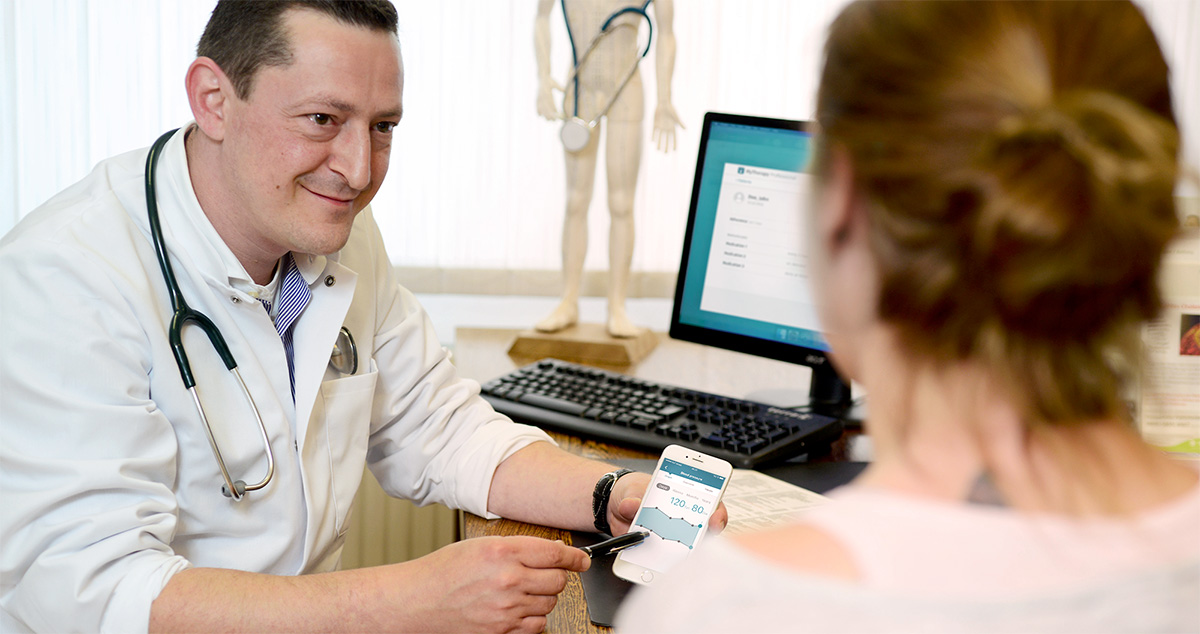Table of Contents
What are the tools and technologies used to build your mobile app (both cloud- and client-side)? Was it native or cross-platform development? Did you consider other technologies?
At 'smartpatient,' we understand that an outstanding UX needs the latest technology: our native apps use Swift and Kotlin and our websites use React.
When it comes to medical apps, sooner or later the issue of data protection and security always comes up. How do you make sure that user data is secure?
MyTherapy and 'smartpatient' adhere to strict German information protection and privacy laws (e.g. EU General Data Protection Regulation). We think that health data should stay private and different from other major players, we clearly state that we do not hand out user data to third parties. Users can find all they need to know about our terms of use and privacy policy on the app under the legal information section. Users also don’t have to register a user account to use our app and can, therefore, use MyTherapy without entering personal information. And on the technical side, we use the latest encryption standards for transferring and storing data.

What's next for your app? Are there any new features, functionalities, or upgrades planned for future updates?
We are consistently working on improving the app by keeping up with the last technological trends on both Android and iOS. The app is available in over 25 languages and we are going to be adding more in the near future, as we definitely want to internationalize our app further. We are also consistently working on updating and expanding our medication databases to other countries. We are always improving existing features and we are committed to designing new features that will help users get maximum benefit from their treatment plans. We aim to become the world’s leading medication and health tracker app and we want to keep the app free for our users while protecting their data and keeping the app free of ads and in-app purchases.
We are excited about the technologies and what they might hold for the healthcare and the future of medicine. What do you think this technology-driven, human-centered future holds for mobile health and how do your app plan to contribute?
Well, the Apple Health Records API was recently released as an extension to Apple’s HealthKit framework earlier in the year, and we believe this is a massive leap forward in connecting the world of healthcare IT with that of consumers.
Treatment management apps – such as MyTherapy – are perhaps the most obvious benefactors of Apple’s latest project. Another example might be tele-counseling and other forms of remote healthcare. Being able to share clinical-grade healthcare information directly could greatly enhance the service a healthcare professional is able to give. For the majority of people, this can greatly improve the functionality of their existing healthcare apps. Both new and existing apps will be able to work with a much more detailed layer of personalization with no extra effort on behalf of the user.
It gives people greater access to their healthcare information and encourages people to take a more active role in their care. This has been shown to improve patient-doctor communication while having a positive effect on aspects such as medication adherence.
More and more people are becoming interested in using apps/ digital health technology. The digital health market is expected to grow by 20% per annum through 2020. Technology designed to support chronically ill patients has just started to spread within the community.
MyTherapy attempts to differentiate itself from the other market products by incorporating a patient-centric approach. Our typical user has one or several chronic diseases. If a patient is living with diabetes and hypertension, for example, they would have to use several apps. From our point of view, patient centricity means having one app that adapts to the needs of the individual patient and their diseases. This is not only more convenient, it also makes more sense from a medical perspective.
MyTherapy is a good example of how people ultimately want to improve their health outcomes and well-being. To achieve this, they need to have more informed discussions with their healthcare providers and can use MyTherapy to keep track of everything health related. We see this as a larger trend: no matter if you look at digital health or other verticals like home automation, people want to make better, more informed decisions. Apps and devices can empower users, as long as privacy does not suffer.
Could you share some word of advice with other mobile app developers? What steps they should follow in order to make a successful app?
Focus on the patient experience!
- Photo courtesy of MyTherapy
- Photo courtesy of


Your thoughts on this